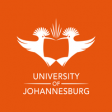
Author: Mr. Dean van der Merwe
Department of Childhood Education
Faculty of Education
University of Johannesburg
______________________________________________________________________________
When student teachers first enter university, 
they have to learn how to juggle their academic
and practical responsibilities. Being careful not
to drop the ball on either. Having been a student
teacher myself, and now working at a university,
I know first-hand how difficult it can be to find
the perfect balance. Fortunately, my experience
has taught me that finding such a balance is possible.
To make it a little easier, here are some tips for balancing academic and practical responsibilities:
Manage your time – do not procrastinate
Failing to plan is planning to fail. Do not leave

assignments and studying for the last minute.
Set aside some time to do work every day and
prioritise your tasks. It is effective to have all
your tasks on a calendar so that you can see
how much time is required for each.
Get enough sleep

Before I learnt how to manage my time
effectively, I have spent many nights
working until the early hours of the morning.
Getting an adequate amount of sleep is
part of a healthy lifestyle. After a good
night’s sleep, you will wake up feeling
refreshed and ready to seize the day.
You will have better concentration during
lectures and you will be more likely to
work on your tasks when you do not feel
groggy from a lack of sleep.
Make time for doing the things you enjoy 
Stanley Kubrick said, “All work and no play
makes Jack a dull boy”. It is essential to take
time out of a busy work schedule to do things
that you enjoy and spend quality time with
family and friends.
Do not be afraid to ask for help
Universities offer a range of services to
assist students who are struggling.
Find out which services your University offers and make use of them. Whether
you need assistance with academic writing,
meal assistance, tips on how to study, or
just someone to talk to, chances are there
will be someone at your University who can help.
Study effectively
I use to be under the impression that
effective studying is something that
requires a lot of time, until I figured out
that studying is not something that has to take days or even weeks. Try different 
study methods and determine which one
works best for you – use this method to
study for tests and exams. Be careful of
trying to cram a lot of information the day
before a test or exam!
Maintain a healthy diet and exercise

The long-term benefits of maintaining
a healthy diet and exercising have been
scientifically proven. Unexpected illness
can hamper your productivity. Missing
lectures and tests/assignment due dates
can create unnecessary stress. Make
sure you eat three healthy meals a day
and try to exercise at least three times
a week. And remember, breakfast is the
most important meal of the day!




